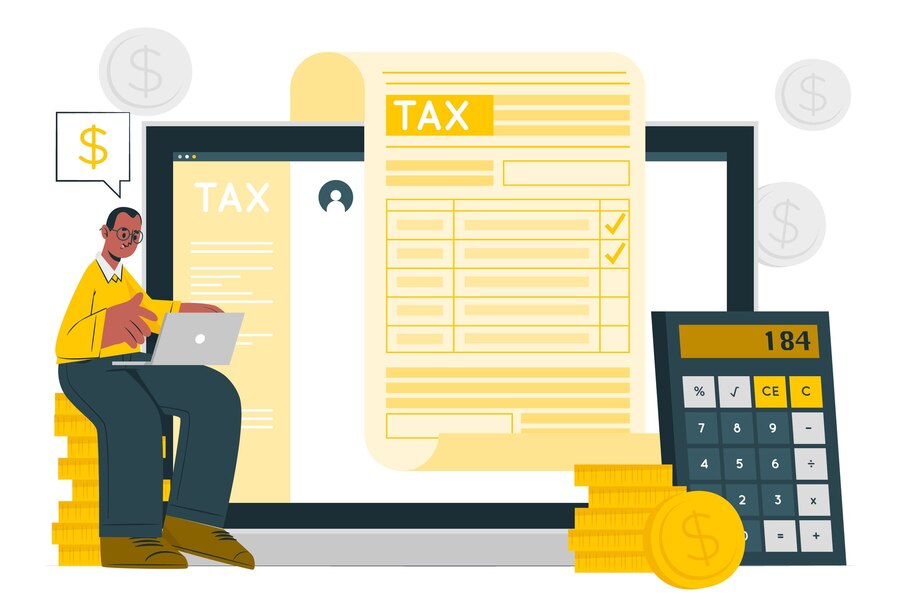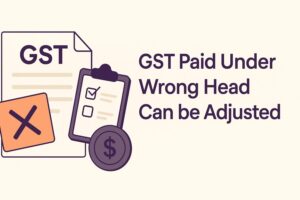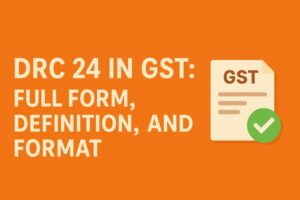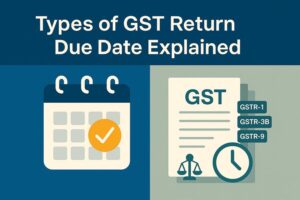Adhoc Statement Charges, Including GST
- 10 Aug 24
- 14 mins

Adhoc Statement Charges, Including GST
Key Takeaways
- Adhoc charges are extra fees for unexpected services or requests, impacting the total cost.
- Know the types: Familiarity with common adhoc charges, like rush delivery or customization fees, aids in effective budgeting.
- GST's Role: GST applies to ad hoc charges, raising the final price. Compliance and clarity in the GST application are crucial.
- Calculation Process: Adding adhoc charges to the base price and then applying GST gives the total cost, reflecting all charges and taxes.
- Navigating Challenges: Best practices include transparent billing, fair pricing, and customer support to handle disputes effectively.
In today’s dynamic business environment, knowing the variation of adhoc charges, including Goods and Services Tax (GST), is crucial for both businesses and consumers.
These charges, often unexpected, can significantly impact the final cost of services or products. This article explains the intricacies of ad hoc charges, the role of GST, and how to manage them effectively.

What are ad hoc charges?
Adhoc charges are additional, unexpected fees that are applied to a bill or invoice for services or products that were not initially planned for or quoted.
These charges may occur for many reasons, like when the customer makes specific requests, when something unexpected happens during the delivery of a service or product, or when extra work needs to be done that wasn't part of the original transaction.
Adhoc charges are often one-time fees and may include items such as rush delivery fees, special handling charges, customization requests, or additional services that were not initially accounted for.
In essence, ad hoc charges are meant to cover expenses that could not have been anticipated at the time of the initial quote or contract, providing a way for businesses to recoup costs incurred from providing extra services or handling unexpected situations.
Transparency and clear communication about any potential adhoc charges are crucial to maintaining trust and a positive relationship between service providers and their clients.
Common Types
Common types of adhoc charges can vary widely across different industries and services. These adhoc charges are typically applied in addition to the base cost of the product or service and can significantly affect the final price.
Being aware of these potential extra costs can help consumers and businesses plan and budget more effectively.
- Rush Delivery Fees: Additional charges for expedited shipping or delivery of goods faster than the standard timeframe.
- Special Handling Charges: Fees for handling fragile, hazardous, or special care items that require more attention than regular products.
- Customization Requests: Charges applied for customizing products or services beyond the standard offerings, such as specific design alterations or feature additions.
- Excess Usage Fees: Charges incurred when the usage of a service exceeds the predetermined limit, such as data overage charges in telecommunications services.
- Late Payment Fees: Additional charges applied when payments are made after the due date.
- Installation and Setup Fees: One-time charges for the setup or installation of equipment, software, or services.
- Change Fees: Fees charged for making changes to the original order or booking, such as altering a flight date or modifying a hotel reservation.
- Cancellation Fees: Charges incurred for canceling a service or order after a certain period.
- Emergency Service Fees: Additional charges for services requested outside of normal business hours or for immediate attention.
- Overweight/Oversize Fees: In logistics and transportation, there are extra charges for items that exceed the standard weight or size dimensions.
- Special Access Fees: Charges for accessing premium features or services that are not included in the standard package or subscription.
- Administrative Fees: General fees that cover the administrative costs associated with processing or handling specific requests or services.
The Role of GST in Adhoc Charges
The Goods and Services Tax (GST) plays a significant role in the application of adhoc charges, impacting both businesses and consumers by affecting the overall cost of services or products.
GST is a value-added tax levied on most goods and services that are sold for domestic consumption.
Here's how GST influences adhoc charges:
- Taxation on Additional Services: When adhoc charges are applied to a bill for extra services or products, GST is also levied on these additional charges. This means the total amount payable by the consumer will include the GST on both the base price and the adhoc charges, increasing the overall cost.
- Transparency and Compliance: Businesses must ensure that their billing practices are transparent and comply with GST regulations. This includes clearly itemizing adhoc charges on invoices and receipts and accurately calculating and applying GST to these charges. Compliance helps avoid legal issues and maintains trust with customers.
- Impact on Pricing Strategy: The role of GST in adhoc charges requires businesses to carefully consider their pricing strategies. Companies must account for the GST while setting prices for their services or products, including any potential adhoc charges, to remain competitive without compromising on profitability.
- Input Tax Credit: For businesses, the GST paid on adhoc charges can often be claimed as an input tax credit, provided these charges are related to business activities. This means that the GST paid on such additional expenses can be deducted from the total GST liability of the business, potentially lowering the overall cost.
- Consumer Awareness: Consumers need to be aware of how GST affects the total cost of services and products, including adhoc charges. Knowing that the final amount payable includes GST on these additional charges can help consumers make more informed decisions and manage their expenditures better.
Impact on Adhoc Charges
The Goods and Services Tax (GST) plays a significant role in the impact of adhoc charges, influencing both the calculation and the overall cost to the consumer.
GST, being a value-added tax, is applied to most goods and services sold for domestic consumption, affecting not just the base price but also any additional adhoc charges that may be incurred during a transaction. Here's how GST impacts adhoc charges:

- Increased Overall Cost: When adhoc charges are applied to a service or product, GST is also levied on these additional fees, leading to an increase in the overall cost to the consumer. This means that any extra services or unforeseen charges not only add to the base price but also carry the added weight of GST.
- Complexity in Billing: The inclusion of GST on adhoc charges can complicate billing and invoicing processes. Businesses must accurately calculate and apply GST to these charges, ensuring compliance with tax laws. This requires robust accounting practices to ensure that all charges are correctly documented and taxed.
- Transparency and Compliance: Businesses must be transparent about the application of GST on adhoc charges. This includes providing clear invoices where both the adhoc charges and the GST applied to these charges are itemized. Failure to do so can lead to compliance issues with tax authorities and erode trust with customers.
- Consumer Awareness: Consumers need to be aware that adhoc charges are not exempt from GST. This awareness can influence purchasing decisions, as the final cost, including GST on adhoc charges, may significantly affect the affordability of a service or product.
- Impact on Budgeting and Financial Planning: For both businesses and consumers, the application of GST on adhoc charges necessitates careful financial planning and budgeting. Businesses need to account for the potential tax liabilities associated with these charges, while consumers must be prepared for the increased costs.
Calculating Adhoc Charges, Including GST
Calculating adhoc charges, including Goods and Services Tax (GST), involves a few straightforward steps. It's essential to understand this process to see how these additional costs and the tax impact the final amount payable for a service or product.

Here’s a step-by-step example to demonstrate how to calculate ad hoc charges, including GST:Example
Imagine you've ordered a product for which the base price is ₹1000, and you request a special rush delivery, leading to an adhoc charge of ₹200. The GST rate is 18%.
Step 1: Determine the Base Price: ₹1000
Step 2: Identify the Adhoc Charge (Rush Delivery Fee): ₹200
Step 3: Calculate the Total Before GST
Total Before GST = Base Price + Adhoc Charge
Total Before GST = ₹1000 + ₹200 = ₹1200
Step 4: Apply GST to the Total
GST Amount = (Total Before GST) × (GST Rate)
GST Amount = ₹1200 × 18% = ₹216
Step 5: Calculate the Final Total, Including GST
Total Including GST = Total Before GST + GST Amount
Total Including GST = ₹1200 + ₹216 = ₹1416
Summary of Calculation:
Base Price: ₹1000
Adhoc Charge (Rush Delivery): ₹200
Total Before GST: ₹1200
GST (18%): ₹216
Total, Including GST: ₹1416
Managing Adhoc Charges
Managing adhoc charges effectively is crucial for both businesses and consumers to ensure transparency, avoid disputes, and maintain healthy financial practices. Here are strategies and best practices for managing these charges:
For Businesses
- Clear Communication: From the outset, communicate potential adhoc charges to your customers. Include detailed descriptions of what these charges are for and under what circumstances they may be applied. This transparency helps set customer expectations and reduces the likelihood of disputes.
- Detailed Contracts and Agreements: Ensure that contracts or service agreements clearly outline the potential for adhoc charges, including examples or scenarios where these might be incurred. This legal documentation can protect your business and provide clarity to customers.
- Transparent Billing: Itemize adhoc charges on invoices and receipts, clearly distinguishing them from regular charges. Apply GST or any relevant taxes transparently, showing the calculation to help customers understand their bills.
- Fair Pricing Policy: Ensure that adhoc charges are justifiable and in line with industry standards. Arbitrary or excessive fees can damage your reputation and customer relationships.
- Customer Consent: Where possible, get explicit consent from customers before incurring any adhoc charges. This could be through digital confirmation or a signed agreement for the specific service or charge.
- Customer Support and Dispute Resolution: Offer robust customer support to address any questions or disputes regarding adhoc charges. Having a clear process for resolving such issues can enhance customer trust and satisfaction.
For Consumers
- Review Agreements Carefully: Before signing any service agreement or contract, review it carefully for any mentions of adhoc charges. Ask questions if anything is unclear.
- Ask for Estimates: When possible, ask for an all-inclusive estimate that considers potential adhoc charges. This can help you budget more effectively.
- Keep Records: Maintain records of all communications and agreements related to services, especially those mentioning potential additional charges. This documentation can be crucial in case of disputes.
- Inquire About Adhoc Charges: If you’re unsure, ask the service provider about any potential adhoc charges before agreeing to a service. Understanding these fees upfront can help avoid surprises later.
- Dispute Unfair Charges: If you believe you’ve been unfairly charged, raise the issue with the provider. Refer to your agreement and any prior communications to support your case.
By following these rules, businesses and customers can manage ad hoc costs more effectively while ensuring an honest and transparent financial transaction.
The Future of Adhoc Charges and GST

Ad hoc fees and the Goods and Services Tax (GST) are expected to change in the future due to shifting customer expectations, technology improvements, and changing regulatory environments. Here’s an exploration of potential trends and developments:
- Digitalization and Automation
Technological advancements are expected to streamline the calculation, application, and communication of adhoc charges and GST.
Automation and software technology can help make billing procedures more accurate by decreasing the chance of human error and boosting productivity. This may result in bills that are easier for customers to read and comprehend.
- Enhanced Transparency and Consumer Protection
In an effort to promote more openness, regulatory agencies may set more stringent rules for the disclosure of ad hoc charges.
This could involve mandatory upfront disclosure of potential adhoc charges in consumer contracts and clearer guidelines on GST application. Such measures would protect consumers from unexpected costs and foster trust in business transactions.
- Integration of Blockchain Technology
Blockchain technology might completely change the way GST and ad hoc levies are handled. Blockchain can guarantee the validity and transparency of transactions, including the application of ad hoc taxes and GST, by offering a decentralized, unchangeable record. Furthermore, there's a chance that this technology may reduce fraud and facilitate tax law compliance.
- Consumer-Driven Changes
As consumers become more informed and assertive, businesses may need to adopt more customer-friendly policies regarding adhoc charges. This could include reducing the reliance on such charges or incorporating them into the base price to offer a more straightforward pricing structure.
- Regulatory Reforms
Governments might revisit GST frameworks to accommodate the changing nature of the economy, especially with the rise of gig and digital economies. Tax laws could be updated to ensure fair taxation practices that reflect the current business models and consumer behavior, potentially affecting how adhoc charges are taxed.
- Global Standardization
With globalization, there might be moves towards standardizing how adhoc charges and taxes like GST are applied internationally, especially in services and digital products. This would simplify cross-border transactions and make it easier for businesses to comply with tax obligations in different jurisdictions.
- Sustainable and Socially Responsible Pricing
There is a growing trend towards sustainability and social responsibility in business practices. Companies might begin to re-evaluate adhoc charges in the context of ethical pricing strategies, ensuring that additional charges do not disproportionately impact vulnerable consumers.
Conclusion
The environment of adhoc charges and GST is poised for significant change, driven by technological innovation, regulatory updates, and shifts in consumer expectations. Businesses and consumers alike will need to stay informed and adaptable to navigate these changes successfully.
The future promises more transparent, efficient, and fair practices in the application of ad hoc charges and GST, aligning with broader trends towards digitalization, consumer protection, and global commerce.
💡If you want to make the most of this Pice business payment application, take a demo session now to see how it works for you.
 By
By 
















